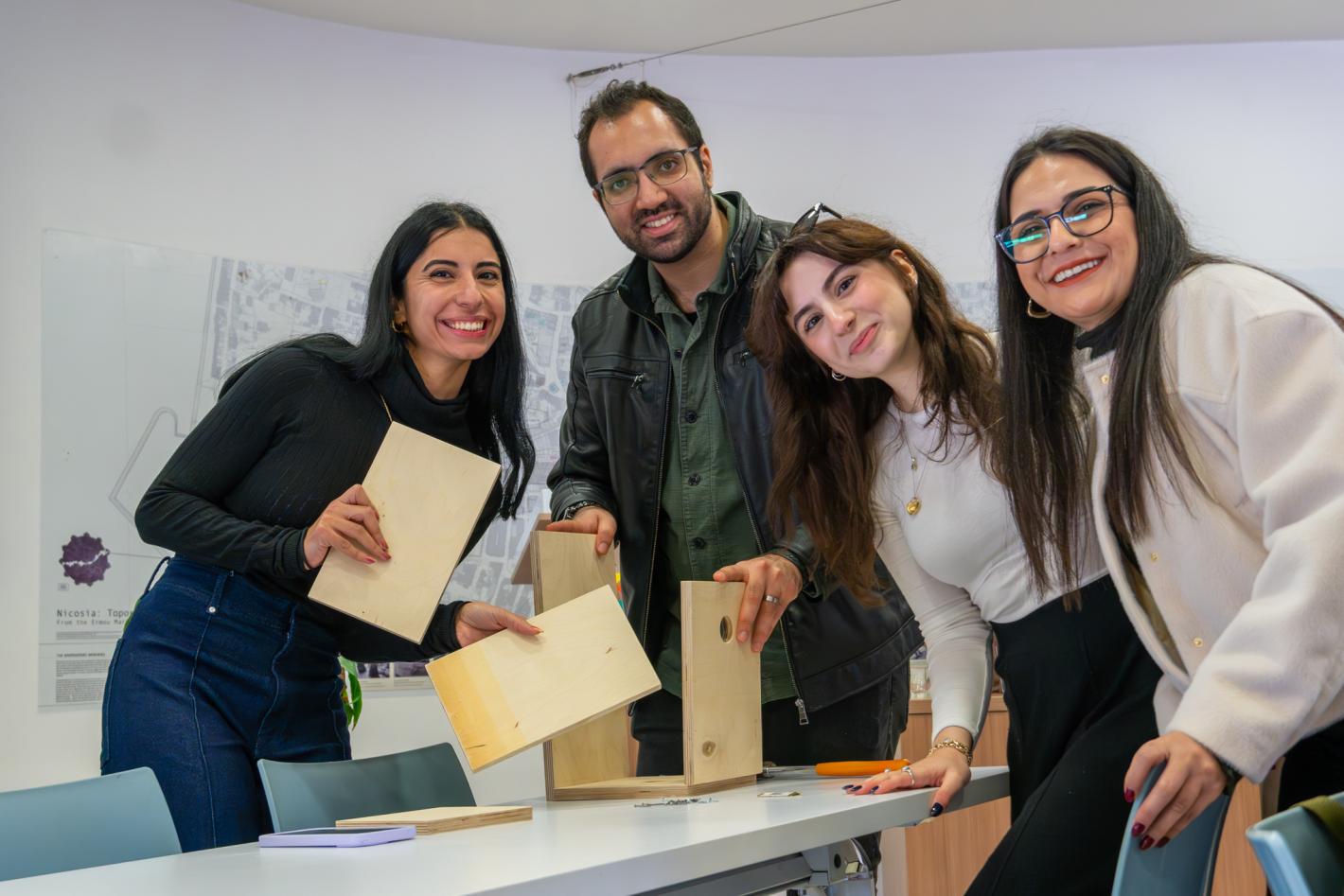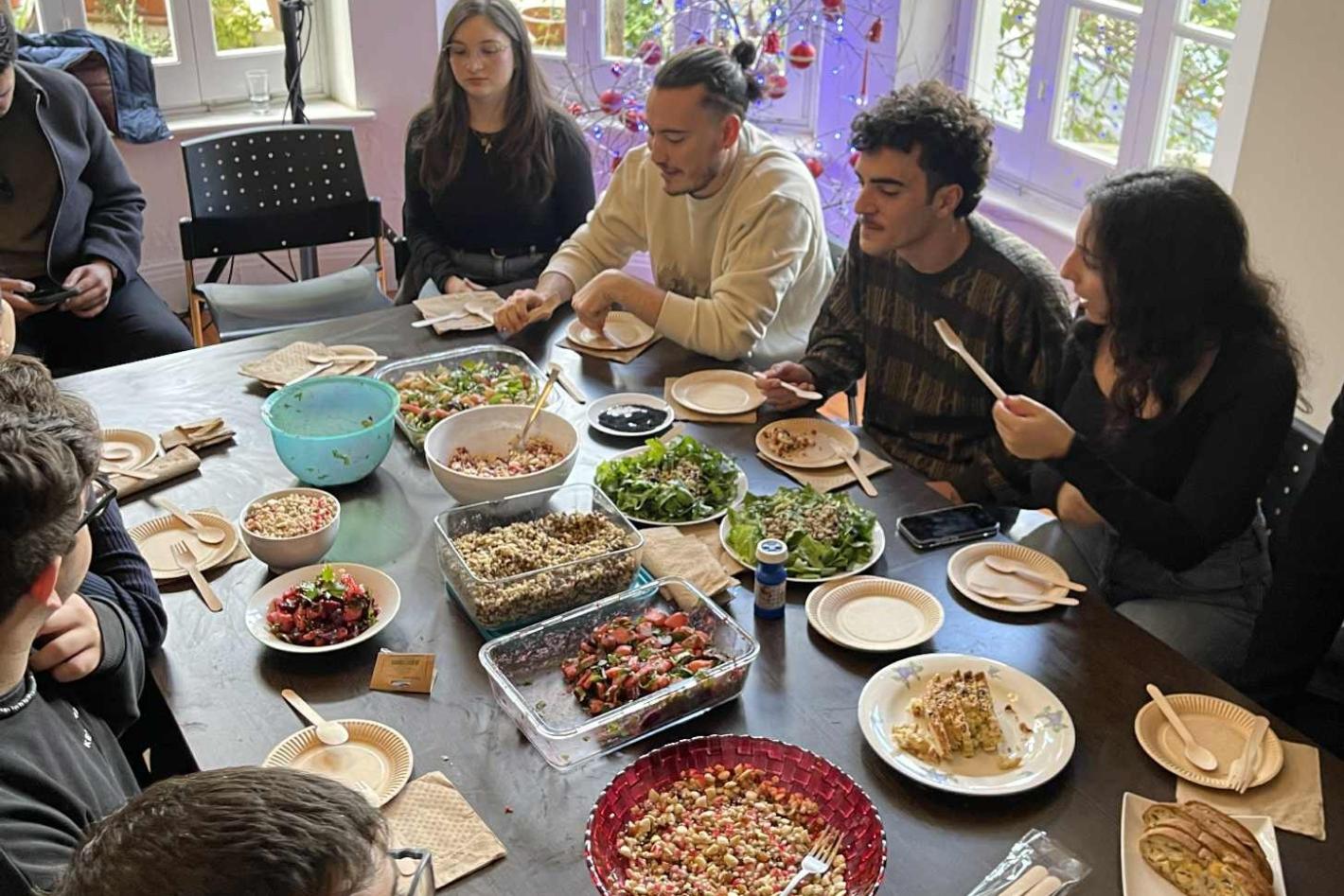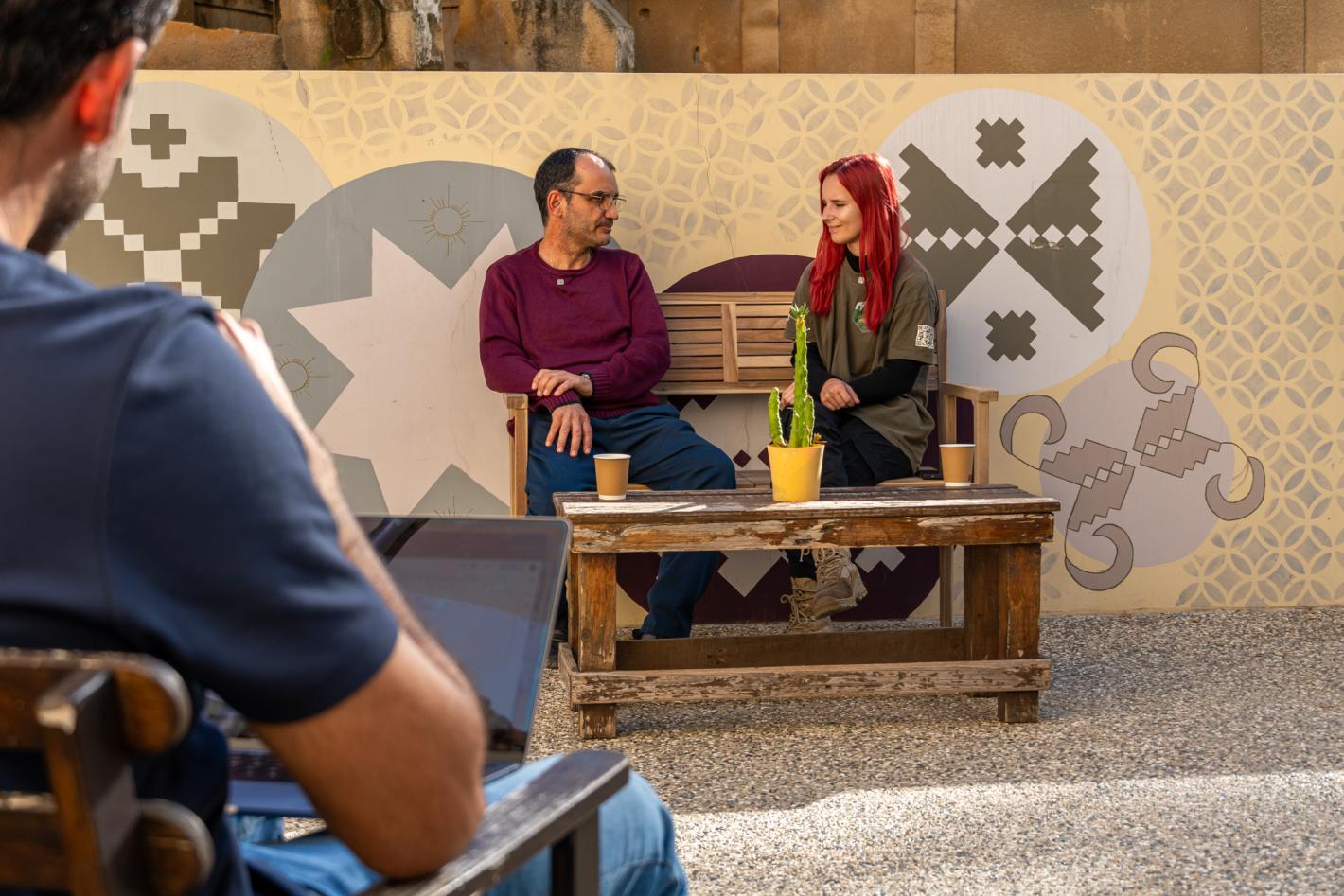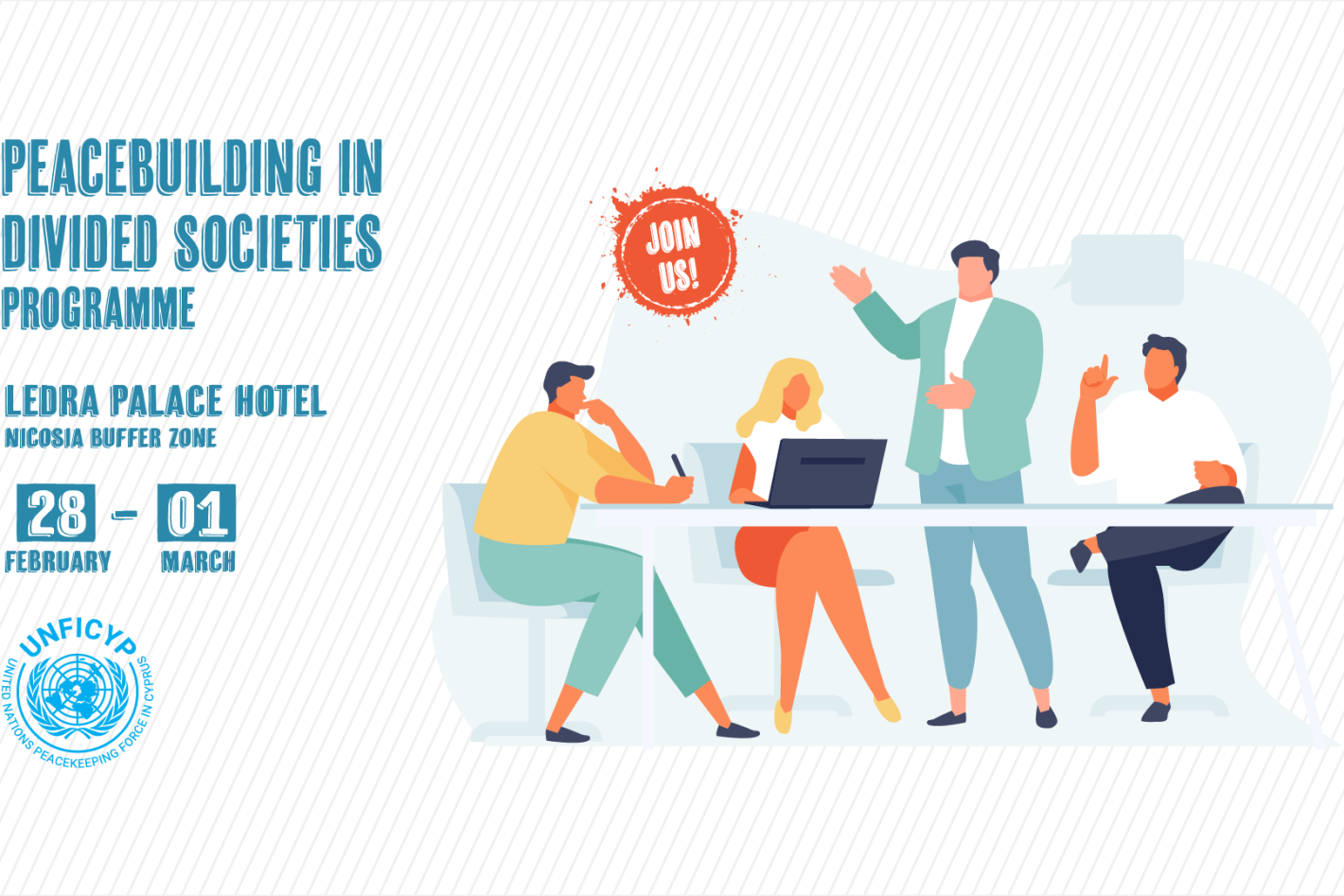Elizabeth Spehar, former Director of DPA’s Policy and Mediation Division, arrived in Nicosia on 13 June to take up her new role as Special Representative of the Secretary-General and Head of the United Nations Peacekeeping Force in Cyprus. Ms Spehar also serves as Deputy Special Adviser on Cyprus as part of the Secretary-General’s Good Offices effort to support negotiations between the island’s communities. As she prepared to leave NY for Cyprus, we talked to Ms Spehar about the unique perspective she brings to her new posting and the future of conflict prevention, peacemaking and peacebuilding.
Politically Speaking: You have served as head of DPA’s Policy and Mediation Division (PMD), the “think tank” of the Department. How has this experience – in addition to your previous work, including in Cyprus – equipped you for your new assignment in Nicosia?
Elizabeth Spehar: First of all I should say how pleased and honoured I am to have been given this opportunity, having been appointed by the Secretary-General for this key position at a key time. From my work in the Policy and Mediation Division (PMD), I’ve developed an enhanced appreciation for the types of support that the missions on the ground can receive from an outfit like PMD within DPA. Largely through PMD’s Mediation Support Unit (MSU), mediation support capacity is readily available through experienced staff, the Standby Team of mediation experts as well as through a comprehensive roster. PMD also has guidance and learning capacities, knowledge management and planning assets and other resources that it can bring to bear. I would say that, based on my experience in PMD, today I have an even greater appreciation of the importance of “lessons-learning”, and of identifying and applying best practices. This is one of the areas I am interested in looking at in the context of my new assignment in Cyprus. Since the UN has been on the island for many years and we have dealt with many of the same issues over such a long period of time, there is a lot to learn from what we have done in the past, from various perspectives. It just makes sense to be very cognizant of what we’ve done and evaluate that experience carefully as we go forward.
How do you see the role of the two UN missions in Cyprus evolving if there is a settlement?
The two missions share many resources. The teams work very well together and there is a high degree of complementarity in their tasks. If indeed the leaders and the two communities ultimately agree on a settlement deal, then of course our role on the ground to support its implementation will have to be looked into in detail. The Security Council already signaled some time ago that it expected there to be contingency planning for a settlement. Some thinking has thus already begun. At the same time, much will depend, first and foremost, on what the leaders will ask of us as well as the contours of the settlement proposal that they will reach.
You helped shape DPA’s contribution to the recent reviews of the UN’s work on peace and security, and specifically of its peace operations, the peacebuilding architecture and the push to increase women’s participation in peace and security efforts (the “1325” review, named for the relevant Security Council resolution). What is your assessment of those exercises and their potential impact, on DPA and the UN as a whole?
I believe that, for DPA and for the UN more broadly, these reviews have been very timely. The reviews have come at a moment when the UN’s peace and security architecture is coming under increasing strain, with resource limitations as well as new and daunting challenges. All three documents speak very much to DPA’s work. There were some key commonalities across the studies which I think are helpful. It’s not that the studies said anything particularly new, but they reiterated some critical points and they clarified and endorsed certain concepts that we cannot, we should not lose sight of. One is the primacy of political solutions to resolve conflict and achieve peace. Another is the imperative of women’s participation and bringing a gender lens to all of our peace and security efforts, with a focus on increased women’s leadership and on more actual implementation of the UN’s extensive women, peace and security commitments. The High-Level Panel on Peace Operations made a forceful case for bringing prevention and mediation back to the fore. And the peacebuilding architecture review very effectively promoted the comprehensive concept of “sustaining peace”. The main strength of the reviews has been to re-focus attention on these vital areas, exhort more action on the part of both the system and its Member States and to point out the need to put much greater political and financial resources toward this end. Now we all need to see how we can follow through.
The term “sustaining peace” is being heard more and more. What exactly does it mean?
This is a concept – sustaining peace – that came out particularly strongly in the Advisory Group of Experts’ (AGE) report on the peacebuilding architecture. The report makes the case that sustaining peace is a critical objective, if not THE critical objective of the United Nations, and that it’s an all-of-system responsibility. “Sustaining peace” is both an objective and an approach that implies working across the pillars of the organization, aligning and integrating development, human rights and peace and security efforts. It also entails constant efforts across a conflict cycle. Preventive action is central to this concept, and should be engaged before, during and after a crisis breaks out and during the aftermath of a crisis to prevent a relapse. It defines peacebuilding as something that also needs to occur at all stages of a conflict cycle in order to make peace durable. We have two important identical resolutions that were adopted in parallel by the Security Council and the General Assembly in response to the AGE report. The resolutions endorse this new term, undergirding the fact that we need a continuous, joined-up and holistic approach to addressing conflict and achieving peace. That is the essence of “sustaining peace”.
DPA was deeply involved in the different reviews. What do they mean for the Department in the coming years?
I think the reviews were very important for DPA. They opened up the opportunity to put before Member States and others, in a more prominent way, the key role of DPA in prevention and mediation efforts in the UN, and in particular the Department’s role in supporting the Secretary-General’s good offices and preventive diplomacy more broadly. Of course, DPA is not the only prevention actor, and one of the strengths of DPA now is that is has started to work much more systematically with other partners, such as the United Nations Development Programme (UNDP), the Peacebuilding Support Office (PBSO), the Office of the United Nations High Commissioner for Human Rights (OHCHR), UN Women, to name a few, on peace and security challenges. This is a key development. I think the role of DPA, across the conflict spectrum, has become even clearer for many stakeholders. Its critical role in “sustaining peace”, alongside other actors, has been acknowledged. The Global Study and the Secretary-General’s response to the study has left no doubt about the centrality of the women, peace and security agenda and the need for us and all other actors to pick up the pace in implementation and in achieving concrete results. These points have now been forcefully made or reiterated through the reviews, so today, we are at the stage where we need to see: What now? The messages of these reports have to somehow be carried forward. Cooperation between UN actors in the peace and security field needs to be deepened, and fragmentation needs to be addressed. The same needs to be pursued more systematically with regional partners, refining the ways in which we understand and execute our respective roles in this field. DPA needs to see how it can fulfill its role across the conflict cycle more fully to support the goal of sustaining peace. This will entail further exploring and developing its role in peacebuilding, including its contributions to longer-term, structural prevention efforts. Both DPA and the rest of the system have already been working hard on implementing many of the reports’ recommendations that are in their purview to address. But the reports also clearly acknowledge that, as much as we can try to improve and be more efficient and cooperate more, the reality is if there are not more resources put into these areas – particularly in prevention, mediation, in peacebuilding – if more predictable funding is not available, it really hampers our ability to do more and respond more effectively, in the way that these reports challenge us to do. And that’s one area where it seems DPA and other parts of the system need to continue the dialogue with Member States. We haven’t yet managed to see that commitment from the membership for more consistent and more reliable resourcing for some of this core work.
Source: Politically Speaking






